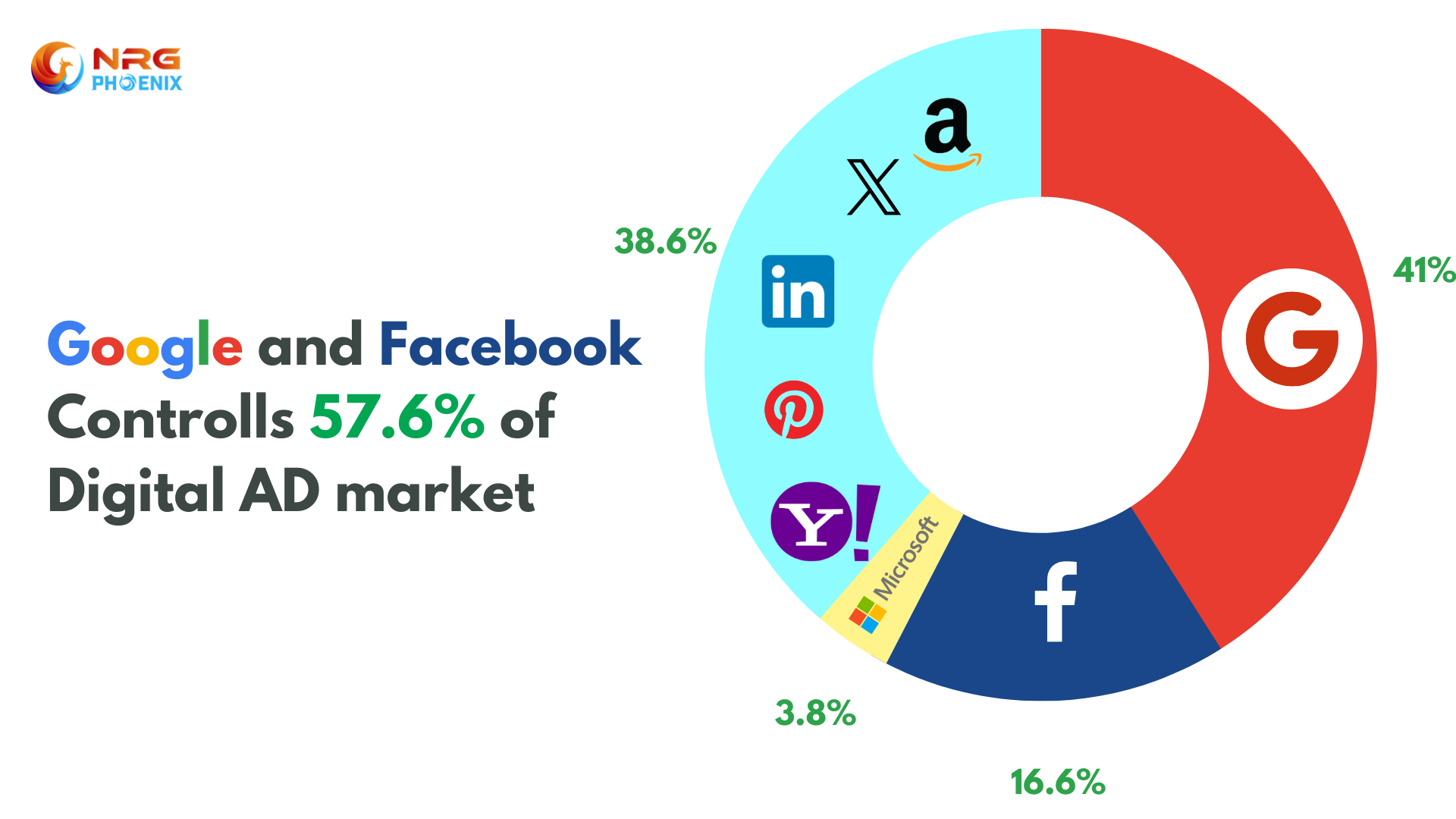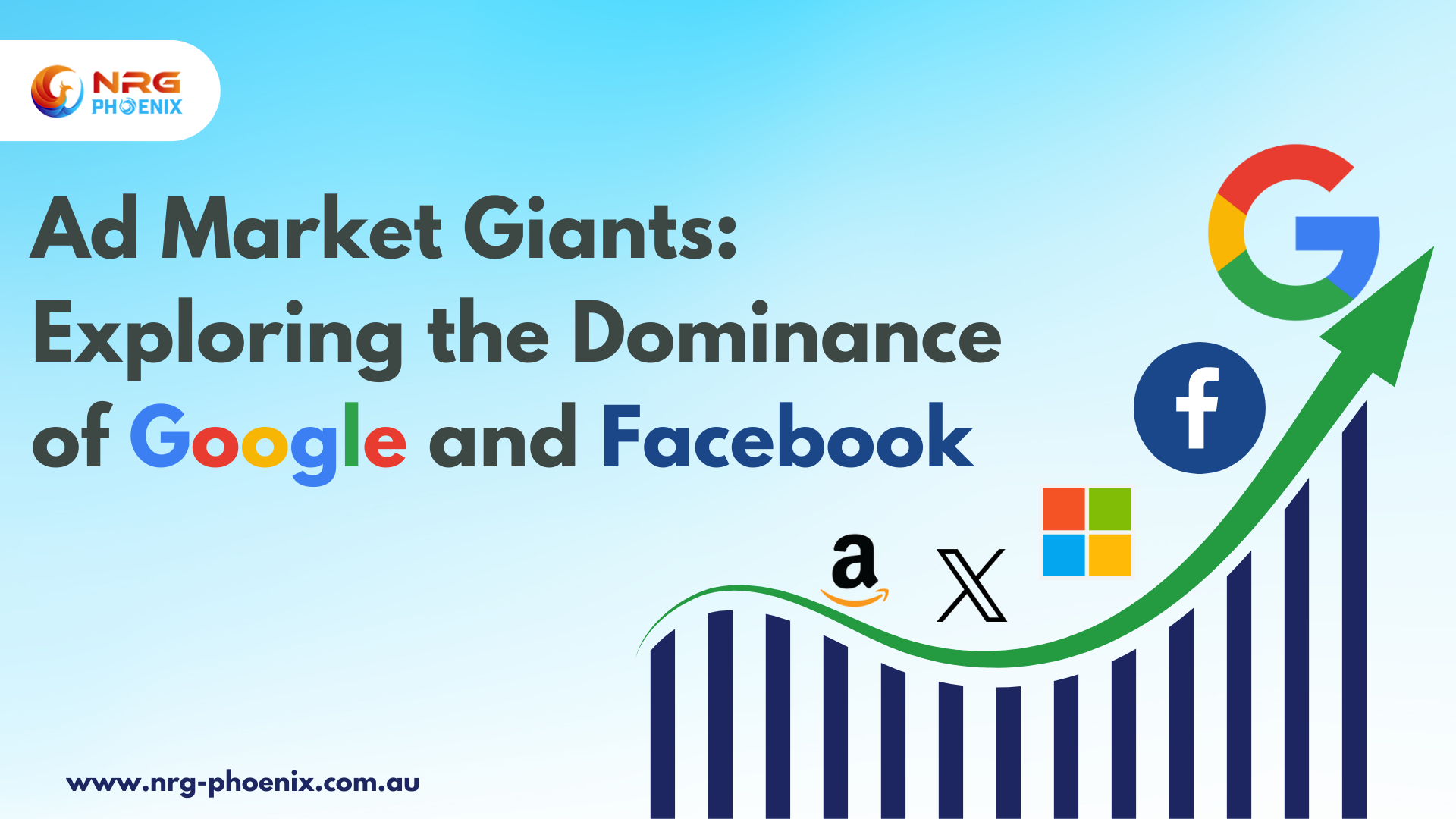Ad Market Giants: Exploring the Dominance of Google and Facebook
In the space of online advertising, two giants stand out—Google and Facebook. These tech behemoths have revolutionised the advertising industry, shaping how businesses connect with their target audiences. In this blog, we will delve into the rise of Google and Facebook in the advertising sector, compare their advertising platforms, explore the statistics and market share they command, address challenges and controversies, analyse their impact on small businesses, present alternatives, and suggest strategies to navigate their dominance.
The Rise of Google in the Advertising Industry
Google has emerged as a powerhouse in the advertising sector. Its primary advertising platform, Google Ads, allows businesses to display ads on Google's search engine and other affiliated sites. Over the years, Google has honed its algorithms, providing advertisers with precise targeting options and extensive reach. The integration of Google Ads with Google Analytics provides valuable insights for optimising advertising strategies.
The Dominance of Facebook in the Advertising Industry
Facebook, with its immense user base, has solidified its position in the advertising realm through its advertising platform, Facebook Ads. The platform offers robust targeting capabilities based on demographics, behaviours, and interests. Additionally, Facebook-owned platforms like Instagram and WhatsApp further extend advertisers' reach and engagement opportunities.
A Comparison of Google and Facebook's Advertising Platforms
Google Ads and Facebook Ads have distinctive features and advantages. Google Ads excels in intent-based targeting, reaching users actively searching for products or services. On the other hand, Facebook Ads focuses on interest-based targeting, allowing advertisers to tap into users' preferences and behaviours.
Advertising Statistics and Market Share of Google and Facebook
According to recent data from visualcapitalist, Google and Facebook collectively dominate a significant portion of the global digital advertising market. Google holds a substantial share due to its widely used search engine and advertising platforms, while Facebook, with its diverse range of social media platforms, commands a considerable portion of the market as well.

- Google Market Share:41%
- Facebook Market Share:16.6%
- Microsoft Market Share:3.8%
- Others:38.6%
Challenges and Controversies Faced by Google and Facebook in the Ad Market
Both Google and Facebook face challenges related to data privacy, ad fraud, and the need to balance user experience with advertisers' goals. Privacy concerns have led to regulatory scrutiny and changes in data usage policies, impacting advertisers' ability to target and track users.
The Impact of Google and Facebook's Dominance on Small Businesses
The dominance of Google and Facebook can present challenges for small businesses, as it may be challenging to compete with the advertising budgets and reach of larger enterprises. Cost per click (CPC) and cost per thousand impressions (CPM) can be relatively high, making it important for small businesses to carefully manage their budgets.
Alternatives to Google and Facebook for Advertising
While Google and Facebook are prominent players, there are alternative advertising platforms that businesses can consider, such as Twitter Ads, LinkedIn Ads, Pinterest Ads, and Amazon Advertising. Each platform offers unique targeting options and audience demographics, providing businesses with diversified advertising opportunities
Strategies for Businesses to Navigate the Dominance of Google and Facebook
1. Diversify Your Advertising Strategy: Allocate your advertising budget across various platforms to reach a broader audience and mitigate risks associated with dependence on a single platform.
2. Optimise Targeting and Creatives: Utilise advanced targeting options and compelling creatives to maximise the effectiveness of your ad campaigns on Google and Facebook.
3. Measure and Analyse Performance: Regularly monitor and analyse campaign performance to identify areas for improvement and allocate resources effectively.
Conclusion: The Future of Ad Market Giants
Google and Facebook are expected to continue dominating the advertising industry, evolving their platforms to meet changing user behaviours and regulatory requirements. Advertisers should stay agile, diversify their strategies, and focus on creating engaging and relevant campaigns to thrive in this dynamic digital advertising landscape. :
Ready to enhance your advertising strategy? Contact us at NRG-Phoenix Technology and let's create impactful campaigns together.
